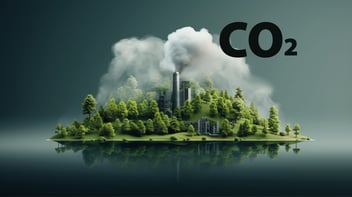Refrigeration systems with natural gases will set the pace for many industries, improving not only energy efficiency but generating a greater commitment to the environment. The importance that these systems are acquiring is reflected in the number of activities, and training in seminars and congresses during 2017, such as those carried out by the IIAR, ASHRAE and Froztec, to name a few institutions and companies.

Perspectives of the use of ammonia as a natural refrigerant
Along with CO2, ammonia aims to be a cost-effective alternative to stop climate change as a result of the effects of synthetic refrigerants on the atmosphere. Therefore, it is convenient to begin the transition towards its implementation in a refrigeration system, providing technical training such as providing forums for users to know more about this technology.
One of the great challenges faced by designers, installers and owners of facilities in industries involved in the cold chain are those related to safety, from the initial phase to the operation. And in that sense, ammonia poses a huge advantage over other refrigerants:
Efficient
The properties of ammonia make it perfect for the use of refrigeration. For example, the cooling capacity of ammonia is greater than other refrigerants. In other words, less ammonia is needed than halocarbon refrigerants to do the same work.
Profitable
Because ammonia is very efficient, companies with industrial refrigeration or cooling equipment can save a lot of energy by using more compact equipment. The savings are sometimes fifteen percent or more. This represents substantial savings in a refrigeration system for a large operation.
Good for the environment
Although NH3 releases fumes, these fumes are not dangerous for the environment. Ammonia only takes a few days to decompose and releases nitrogen in the process. Unlike some refrigerants, ammonia does not harm the ozone layer and is not a hazard after it enters the atmosphere.
Smoke characteristics
Although ammonia fume is toxic, it is very easy to spot. When there is a leak in a system, you will know it quickly and you will be able to take measures in this regard, increasing safety in the work processes.
Safety: the strong point of ammonia
Most of the preparation that the refrigeration industry must face is related to this last point. All those involved in the refrigeration chain must focus their multidisciplinary knowledge in compliance with safety regulations.
The risks related to ammonia refrigeration can be substantially reduced by careful administration and maintenance. Part of that process is the clear labeling of the pipes and the equipment that is being used.
As industry experts in this field, the IIAR (Institute of Industrial Ammonia Refrigeration) maintains a code of recommendations for the labeling of refrigeration equipment. This coherent system simplifies maintenance and promotes safety, and is compatible with the ANSI / ASME A13.1 standard, which is the most commonly used for marking pipes for general installations. In this standard, the abbreviation of the pipe, the content of the pipe and the direction of the flow will be shown in black printing on an orange background; this is the preferred presentation for pipes with toxic content, such as ammonia.
Technical considerations in the use of ammonia as a refrigerant gas
At the technical level, because the properties of ammonia are most suitable for large refrigeration systems, it is likely that there would be a large amount of ammonia in the system. Any trace of water in the system would tend to freeze and clog the pipes, so the ammonia refrigeration systems should use anhydrous ammonia (without water or other impurities).
OSHA considers anhydrous ammonia to be "immediately dangerous to life and health" at a concentration of 300 parts per million (ppm), or 0.03%. Ammonia is corrosive to the skin, eyes and lungs, and even a brief exposure can cause serious chemical burns, so proper control and detection engineering is essential for their operation.
Related
Discover more related articles

The refrigerant evolution: Optimizing efficiency and reducing the...
Within the industrial cooling domain, refrigerant play an essential role in guaranteeing a proper system response. However, in the last years, their...
Read more »
Why switch to a system based on natural refrigerants for your industry?
It’s not that your equipment or refrigeration system is defective: but you will have to change it if you don’t follow the regulations of protection...
Read more »